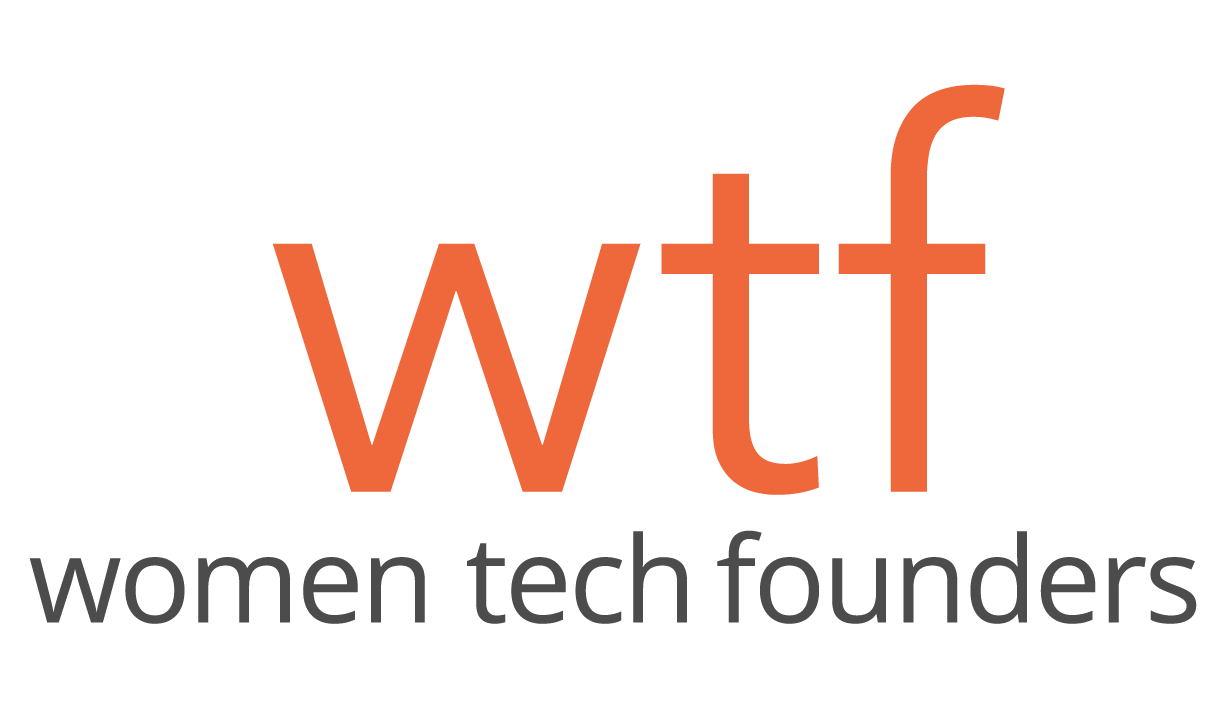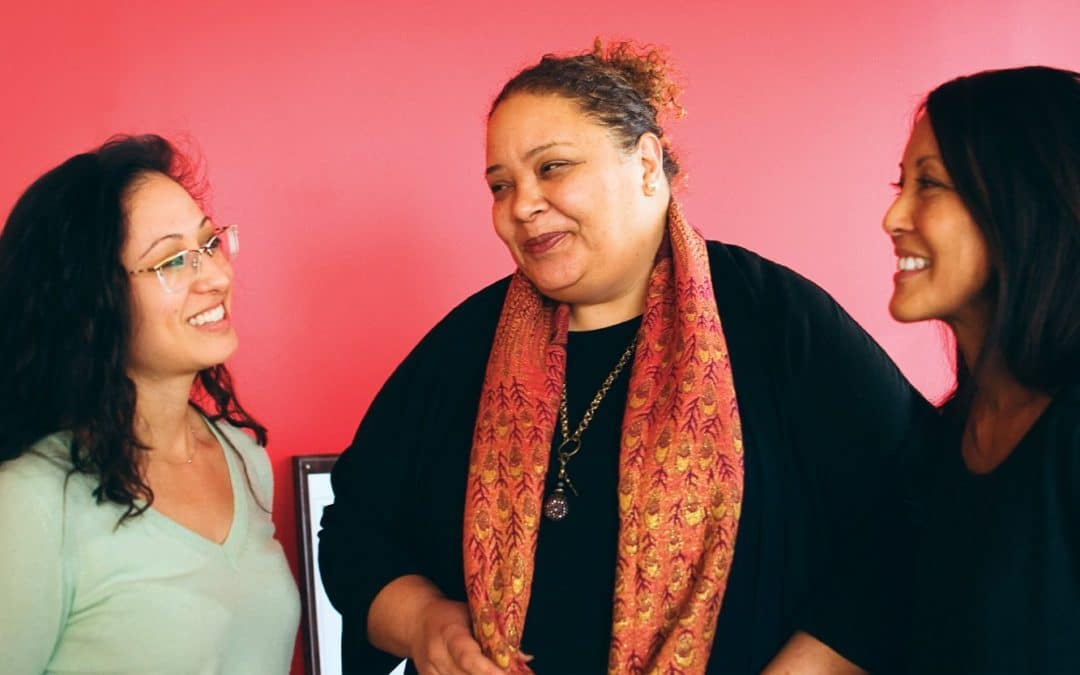Two women in Chicago’s tech community say yes—and they are breaking down barriers to job opportunities to prove their point. Terri Brax talks with Elena Rubin-Valentine, co-founder of SkillScout, a hands-on hiring organization that drives diversity through innovative video and skills interviews, and Sandee Kastrul, the founder of i.c.stars, a technology-based workforce development and leadership training program for low-income adults.
Terri:
You’re both leading social entrepreneurs in the tech startup and impact communities, and both passionate about fighting the employment challenges that many young Chicagoans face. What spark started your story?
Sandee:
I was a math and science teacher. I had no business going into IT. I was kind of like that one room urban schoolteacher, the one ringing the bell, and saying, “Everybody come in! You in the bushes smoking, put that out and get into school!”
I always believed in this idea of human-centered design, for me, education was about bringing out the individual. Let’s understand who you are, what’s motivating you, what your priorities are, and who you are as a person, and connect that understanding to sell physics.
And my kids did great. But once they transcended all their test scores and finished, they were walking off a cliff because there weren’t the other opportunities waiting for them. The narrative was, these kids can’t learn, they can’t do higher math. All can’ts. But my hypothesis was: the real talent is in our inner cities, and the resiliency of facing adversity day after day after day is actually an incredible asset because the resiliency the developed helped them develop creativity, critical thinking skills, the ability to solve complex problems, and chutzpah.
So I thought, “What if, we match this unutilized talent with technology companies, who desperately search for people who can think outside of the box? Could we explode all of the norms that have become American business?” So we started finding, training and putting talent to work in IT jobs. There was a tremendous opportunity in hiring our graduates, because they think outside the lines. And then we added entrepreneurship training, so students were taught to add value and create opportunities for others. Because in the end, that’s all leadership is, it’s making opportunities for others. And by creating leaders, we’re developing problem-solvers inside our community rather than waiting for other people to fix them, why not it be us?
Elena: Our inspiration is very much in line with the work that i.c. stars does. I was a former design researcher, at Gravitytank. We were working with the W. K. Kellogg Foundation, and saw a national problem of 7 million young adults who were not in school or in the workforce. And we were organizations like ours to kind of think differently about, “how do we connect these young people to more meaningful pathways to employment?”
And so as design researchers, we were like okay, let’s go to the hardest to place populations first. So that was formerly incarcerated young people in inner city Baltimore or Chicago. This moment markedly had changed my life. Here I am in a woodworking shop of talented young people who are making rounded chairs and specialty cutting boards, and they’re making park benches along the Maryland Harbor. You tend to forget that these are young people that were filtered through the juvenile justice program.
And what we saw was, man, they may not have work experience, they may not have left their neighborhoods, they may have records, and they may not look good on paper, but gosh are they talented. Any company would be lucky to have them. On the other hand, the reason we had talked about job postings was, you cannot be who you cannot see. And so if you have candidates who never left their neighborhoods, how can they see the opportunities that exist in IT or manufacturing? So that’s what we wanted to do. We wanted to transform the whole hiring process, and humanize it through storytelling and videos job postings.
We saw that people are connecting jobs to resumes. That’s typically how they discovering each other. But we knew that there are huge populations of candidates and companies that don’t look good on paper, so we created video job postings. So we go out to companies and we film short job posting promotions, demystifying the job requirements, showcasing the people they’re working with the company, the kinds of skills, having that be brought to life to provide more access and understanding to candidates to understand, can I do this job? And on the job seeker’s end, we help companies experience candidates, rather than just a resume. We work in industries where candidates can submit a work sample: a relevant task that they would be doing on the job. We call it “human centered hiring.” We bring humanity back into the hiring process because right now, too many people have skills but grew up in difficult situations, are shut out of jobs. And a meaningful job can determine your future, and the future of your family.
Sandee:
And that’s so ridiculous, that’s just such a wasted opportunity for the companies too…
__
Elena:
To that point, studies show that many successful entrepreneurs have gone through something very tragic in their life. They experienced a lot of trauma and tragedies in their lives. And these entrepreneurs and researchers credit, the reason why they have been so successful is because they had to undertake so much early on and it made them more resilient to the failing that is a part of moving a business forward.
Sandee:
So what was your defining moment – when you left the stability of what was known and the very prestigious company?
—
Elena:
I saw that stories move people, not just data points, stories of candidates, and the authentic, human stories of people who make up companies. And I realized I could capture those stories. This certainly also has to do with the fact that when I graduated college, I knew I wanted to come back and serve my community. I was a labor organizer, organizing, for the second largest hospital systems in the city. And that taught me, right out of college, what work meant to one’s identity and the livelihood that that meant to their families, and seeing you can bring people together to build movements. And that’s what really inspired my passion around one’s attachment to the work and particularly the changes that can happen when people can come together. And then you combine that with media and storytelling, that’s where I kind of saw my life experience folding into my professional experience.
Now I’m waking up and saying, we’re going to dramatically transform communities by doing what we’re doing and what an honor and a gift it is that god has given me the ability to do this each and every day.
That’s what I feel I’m blessed with.
—
Sandee:
Shut it down, that’s brilliant! The beautiful way that you describe moving from people as commodities to telling the stories of our humanity is chilling.
Elena:
Hiring should not be transactional. This is not like me giving you a dollar, and I’m getting some goods. These are humans.
Sandee: And it’s infinitely more valuable. Human beings, than the sort of data points that you can buy, right? And because, think historically, like we had a whole slave trade here, right? And it’s profound to think about just in terms of metaphors and language, about how much we spend on recruiting, how much to find the we spend to find that person and retain that person. All of that language about what can I get out of people and how can I own them, to really moving the conversation to how can the people within our organization, own the mission? And that we know, when businesses take that approach, they’re infinitely more powerful, more profitable, more successful.
What I loved about your story was that the very notion that this was about changing the world. Seeing there’s a gap, there’s a problem. And that I want to take a step at addressing this. And that’s the fearlessness, I think, that the greatest warriors in WTF (Women Tech Founders) represent.
—
Elena:
And that’s what keeps me up at night. I get this advice all the time, you hear these quotes, your dreams should scare the shit out of you. Oh my gosh, I’m up at 3AM scared. I’m like, oh my gosh, can this really work? You know, I constantly question, really? And I’m constantly thinking about that, and you know, it’s scary. It’s taking it day by day, knowing what my vision is. I don’t necessarily have what that six month plan, that year plan, what that could look like, but, every day is important.
—
Sandee: Well, waking up at 3 in the morning is a part of the process. Change is uncomfortable. And that’s how we know it’s working. If you’re an entrepreneur, you embrace what’s uncomfortable. You get comfortable with being uncomfortable. And you know that to make it through to the other side, you have to let that be for us. That’s why we don’t sleep so well, because we’re constantly on the precipice of change. That’s where innovation lies. So contrary to what our mothers wanted for us, to have a stable, secure, not-worry-and-good sleep, we are the weirdos who say no, I’m going to be in this state of constant change. And that is the definition of a change agent.
Terri:
I see you both as change agents for young people in Chicago. What’s your perspective on the headlines stories we’re seeing here?
Sandee:
(Deep sigh) We have violence and corruption, and a lack of transparency that’s decreasing the ambition of our inner city communities, because they don’t see a real opportunity to plug in. I believe there are policies in place that exacerbate the problem, and repress us in profound ways. One of my favorite Jesuit priests, once said, “Nothing stops a bullet like a job.”
Elena: Father Gregory Boyle. Homeboy Industries. Father G.
Sandee:
That’s right! And really, back to your point about figuring out who we are by what we do, I think as we get older and wiser, we sort of transcend that to it being about who we are versus what we do. But there is a definite window where having meaningful work changes everything. Because really what this is about is opportunity. If there’s a lack of opportunity, why would I believe there’s anything I can do about it? If there’s policies that keeps us from engaging in the economic mainstream because of our past or because of our gender or because of where we come from, why would I believe that we can do anything about it? And so my call to action is very much related to this whole conversation about, if we are gatekeepers of opportunities, if we have the ability to create opportunities, to open up the landscape of where we source our talent from, and to challenge our very perceptions about who comes into our organization, and then it’s time to look for folks who don’t look like us.

